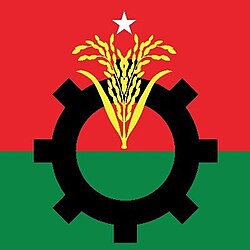The Bangladesh Nationalist Party (BNP) has taken a firm stance against granting constitutional recognition of the July Charter and July Declaration, while maintaining that the reform proposals outlined in the July Charter could realistically be implemented within two years by the next elected government.
This position emerged during the party’s Standing Committee meeting chaired virtually by acting chairman Tarique Rahman from London at their Gulshan political office on Monday night, July 28.
The party has submitted revised versions of both documents to the interim government, having made strategic additions and deletions. BNP sources reveal the party’s fundamental objection stems from concerns that constitutional recognition of the July Declaration would create a problematic precedent.
Standing Committee members argued this could necessitate similar constitutional status for past movements like the 1990 anti-Ershad uprising, potentially complicating the constitutional framework. They pointed to historical precedent, noting how Bangladesh’s 1971 Independence Proclamation wasn’t incorporated into the constitution until 2011 through the Seventh Schedule, a move that itself faced legal challenges.
While rejecting constitutional status for these documents, the BNP has shown willingness to engage with the reform agenda. The party has endorsed six of the seven clauses in the July Charter draft, only opposing Clause 7 which calls for constitutional recognition of the 2024 mass uprising.
The approved clauses include a commitment to implement all reform proposals within two years of the next government taking office.
The party has proposed significant modifications to the July Declaration draft. Where the initial version attributed the uprising solely to student movements, the BNP’s revised text acknowledges the broader political struggle, including the roles of opposition parties like itself and Jamaat-e-Islami during Sheikh Hasina’s 15-year rule.
It also recognises key historical events including the November 7, 1975, uprising and Ziaur Rahman’s restoration of multi-party democracy, while characterising the 1/11 regime as a conspiracy. Notably, the BNP replaced language about “abolishing” the constitution with a commitment to constitutional reforms protecting civil rights.
BNP leaders have suggested preserving the 2024 uprising’s declaration as an official political document in state archives rather than enshrining it constitutionally. This compromise position reflects their desire to honour the movement while avoiding what they see as unnecessary constitutional complications.
The documents’ drafting process has been contentious since December 2024, when student leaders first attempted to proclaim the declaration at Central Shaheed Minar. Chief Adviser Muhammad Yunus intervened, calling for broader consensus among all anti-government forces.
While nearly 30 political parties have submitted feedback, the National Citizen Party has dismissed the current draft as “immature,” threatening to proclaim their own version if the government doesn’t act by August 5.July Charter, Declaration


